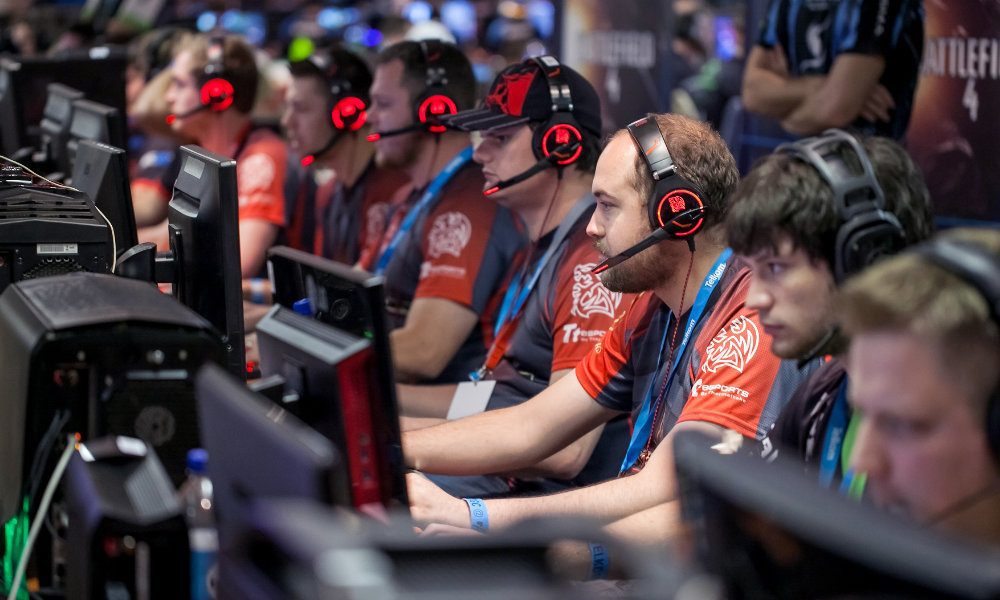Nevada casinos got the go-ahead Thursday to book bets for esports competitions, just as they do sporting events, under new regulations approved by the Nevada Gaming Commission.
After a hearing that lasted nearly an hour, the Commission took action on recommendations drawn up by the Nevada Esports Technical Advisory Committee a year ago. The Gaming Control Board in January adopted the recommendations, while adding a doping provision that was removed by the Commission Thursday out of concern it would stifle wagering.
Nevada is aiming to lead the way in U.S. esports wagering and hosting competitions that will draw tens of thousands of fans to the city. Unlike most sports betting, casinos have had to seek approval every time they wanted to take wagers on events around the world, a step that made it difficult to plan and promote wagering, thus curtailing esports betting.
Gaming Control Board member Brittnie Watkins told the Commission, “The regulations are very important to our industry. These amendments have been a long time in coming and it’s my belief they will help promote and increase the volume of wagers. They’re in line of our policy goals of promoting the success of gaming.”
Like sports betting, casinos will be required to report suspicious transactions, prohibit coaches, participants and officials from placing wagers, and monitor match fixing, according to Nevada Senior Deputy Attorney General John Michela.
The Commission opted not to include one provision that has popped up since the esports committee acted a year ago. It excluded an amendment dealing with drug testing in esports competitions that goes beyond what’s required for traditional sporting events, which the leagues monitor and make the rules.
The proposed regulation would have required a licensee to verify that an esports event has a code of conduct that includes prohibitions on doping. Instead, the Commission adopted language about having effective integrity safeguards in place and excluded a code of conduct on prohibitions dealing with doping.
Commission Chairman Jennifer Tagliotti said the language on doping “seems to be a nice idea, but logistically, financially, and practically very difficult.” She also said it wasn’t part of the esports committee’s recommendations.
Alisa Nave-Worth, who represented the Entertainment Software Association, said drafting language on doping has “substantive and procedural concerns.” It would make most esports competitions “functionally ineligible” for wagering in Nevada.
“While many integrity safeguards are currently in place for sanctioned events, esports competitions are growing and evolving at a phenomenal rate,” Nave-Worth said. “Even reasonable experts in doping programs disagree what it means to implement an effective deterrence program. While the video-game industry has a vested interest in ensuring integrity in game play, the requirement that sportsbooks not accept wagers on esports events unless an effective program to deter doping can be shown has the practical consequence of making more esports tournaments ineligible for wagering in Nevada.”
Most event operators see anti-doping measures as cost prohibitive and lack the evidence of proven benefit, Nave-Worth.
“Unlike conventional sports where sports [take place] in one arena in a particular area, in an esports tournament, the teams are participating worldwide,” Nave-Worth said. “Logistically, the analogy between a traditional sporting environment and an esports environment is inapplicable.”
While many operators and publishers are working toward doping solutions, most of that is being done for the health and safety of participants, since they’re younger in age, Nave-Worth said. There’s no proof that doping impacts the integrity of the sport, she added.
Nave-Worth said the proposal wasn’t thoroughly vetted, because it didn’t go through the esports committee, but was added by former Gaming Control Board member Phil Katsaros.
Removing the doping language doesn’t dilute the requirements to ensure effective integrity standards are in place, Nave-Worth said.
Watkins told the commissioners that sportsbooks will have the flexibility to increase wagers on esports and do their own due diligence on the events.
“The requirement passed by the Board requiring an effective program to deter doping presents ambiguity,” Watkins said. “It has been interpreted by some to mean drug testing must be implemented. We don’t currently require that for traditional sports, but we expect licensees to do their due diligence and ensure integrity standards are in place for the competitions they take wagers on. That’s the goal.”
Watkins also agreed with others that the language wasn’t vetted by the esports committee and it should be considered only after they’ve reviewed it.
Prior to the hearing during public comments, Seth Schorr, chairman of the Downtown Grand, CEO of Fifth Street Gaming, and a member of the esports committee who has led the way for esports in Nevada, said esports wagering is important for the industry and must have as little friction as possible.
“I can give you a lot of reasons why esports wagering hasn’t gained the handle that many in our industry had hoped for over the past eight years, but I can summarize it with this thesis that sports betting is a very crowded, complicated, and competitive space,” Schorr said. “Even the biggest companies, much larger than mine, have limited resources, lots to focus on, and a long priority list. While many, if not all, think esports is important, if there’s a lot of friction in terms of integrating it into their strategy, it’s not going to do. There are other things to focus on.”
Schorr cited an article on esports that says wagering on it is greater than esports itself and that should be the lesson for the industry.
“It’s a chance to engage an untapped demographic of bettors, differentiate product offerings, and future-proof business by gaining street cred with the next generation of consumers,” Schorr said. “Viewing esports as a percentage of the overall betting industry and nothing else isn’t taking into account the bigger picture.” Schorr added, however, that without regulation, “esports is dead in the water.”




